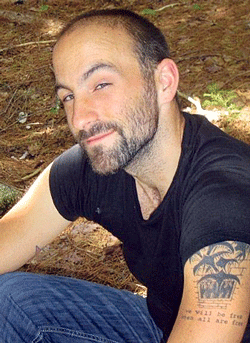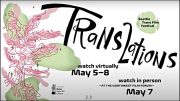By: Jason Lydon*/TRT Columnist–
The majority of the GLBT press is currently heralding the Violence Against Women Act as an essential piece of legislation for our community and even patting Senator Scott Brown on the back for his support, but I want us to look a bit more closely. Firstly, it must be abundantly clear to all of us that violence against women is a serious problem that compromises our capacity to be truly human. Gender-based violence, domestic violence, sexual assault, stalking and other systemic patterns of control by one person over another are all issues that deeply impact our LGBTQ communities and require our whole-hearted attention and commitment to action. However, is the Violence Against Women Act the way to solve these problems?
According to the FY2011 budget for the Violence Against Women Act, 70% of the $649.36 million was put in the control of the Department of Justice, distributed to law enforcement, prosecutors and other arms of the penal system. Angela Davis reflected on this in 2000 as she spoke at the founding conference of INCITE! Women of Color Against Violence in Santa Cruz. Speaking under the title of “The Color of Violence Against Women,” Davis explored the ways the domestic violence movement made it into the mainstream and the reality of white feminist demonization of men of color as perpetual perpetrators while simultaneously dismissing the concerns of women of color. Even though the mainstream domestic violence and sexual assault movements were dismissive of many women of color, there have always been strong women of color voices speaking out about personal, institutional and cultural violence against women of color as well as honoring and celebrating survival strategies.
Victoria Law, author of “Resistance Behind Bars: The Struggles of Incarcerated Women,” recently did an interview on resisting gender violence without cops or prisons. In her interview she stated that, “the threat of imprisonment does not deter abuse; it simply drives it further underground. Remember that there are many forms of abuse and violence, and not all are illegal. It also sets up a false dichotomy in which the survivor has to choose between personal safety and criminalizing and/or imprisoning a loved one. Arrest and imprisonment does not reduce, let alone prevent, violence.” The Violence Against Women Act is being celebrated by LGBT people because it includes language that extends the legislation to people in same-sex relationships. Yet we need to ask ourselves if prosecution is working to truly address violence in our communities. Angela Davis asked at the INCITE! conference, “Can a state that is thoroughly infused with racism, male dominance, class-bias, and homophobia and that constructs itself in and through violence act to minimize violence in the lives of women? Should we rely on the state as the answer to the problem of violence against women?” We need to ask the same question about LGBTQ communities as well.
The Violence Against Women Act has also been used to expand the power of the state in data collection. In 2005 the Kyl Amendment was included, which made it legal to collect DNA from undocumented people held in detention, as well as any individual who was arrested on a felony charge. Before an individual sees a judge, before an individual has a trial, they can be forced to submit their DNA to the national database. This extension of state surveillance was able to pass under the guise of protecting women, but rather it gives more power to the government and whittles away at civil liberties. DNA collecting has been supported as part of the “colorblind” solution to address racism in the criminal justice system, but the reality of who is getting stopped, harassed and arrested by the police shows us that any data collection done will only exacerbate the impact on communities of color. In 2008 the Council for Responsible Genetics called this practice, “building Jim Crow’s database.”
My critique of the Violence Against Women Act is not an attempt to silence the reality of women or LGBT people. Rather, I am hoping we can create a critical lens that analyzes our solutions to social problems. I believe the Violence Against Women Act leads to greater violence, an extension of state violence through policing, prison construction, mandatory prosecution, data collection and more. It is key that we listen to the voices of those who are consistently silenced in anti-violence movements. I encourage readers to approach the Violence Against Women Act with suspicion and engage the expertise of organizers and scholars such as Victoria Law and Angela Davis.
*Rev. Jason Lydon is a Unitarian Universalist minister in Boston. He is a long time anti-prison organizer and founder of Black & Pink, an LGBTQ-focused effort working toward the abolition of the prison industrial complex. Jason is also an avid lover of famous people and blockbuster action flicks. You can reach Jason at blackandpink99@gmail.com








